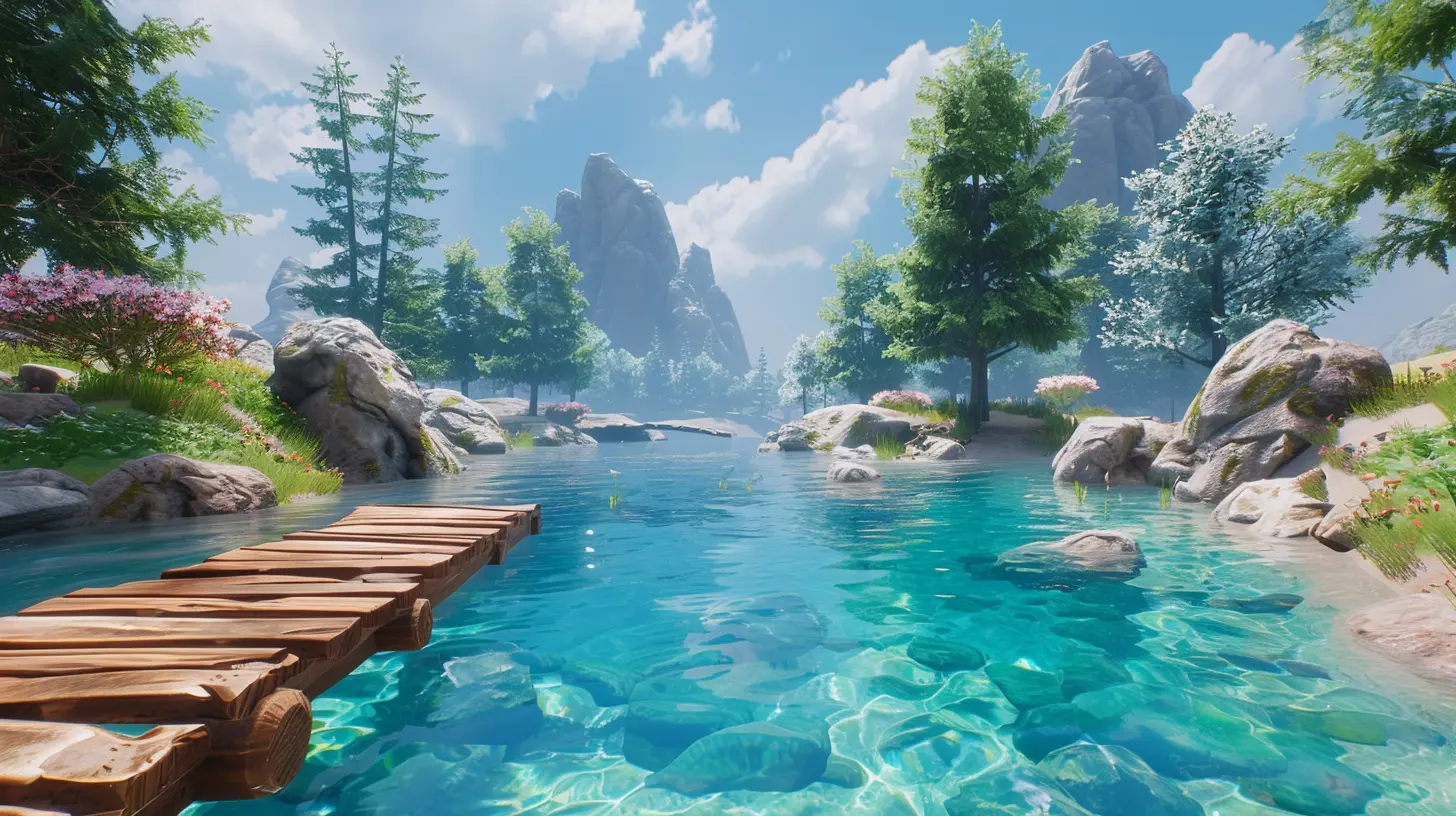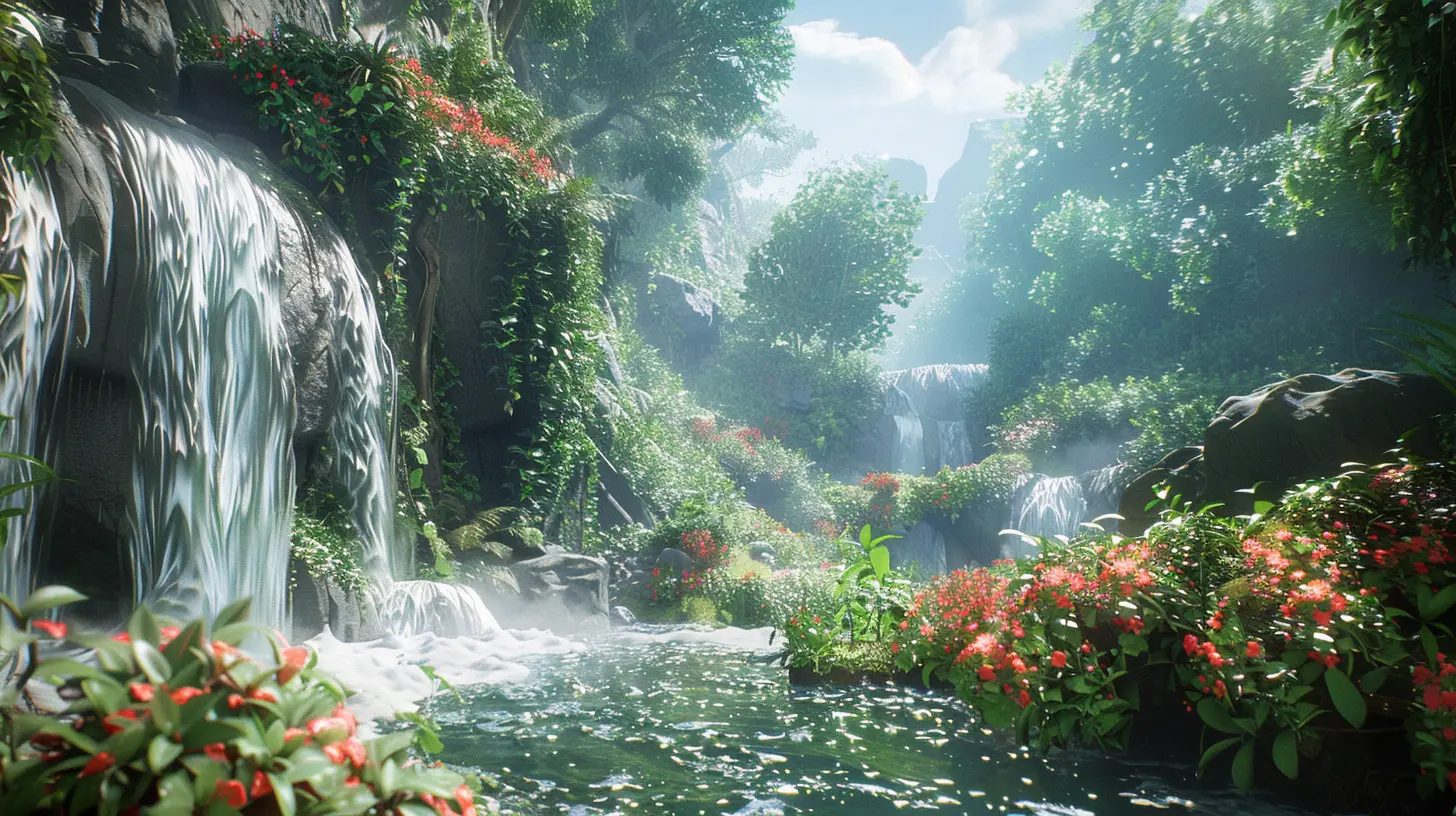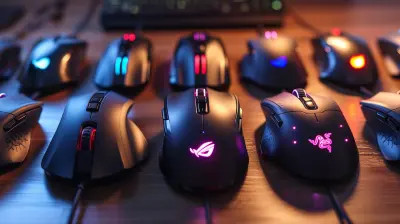Unity vs Unreal Engine for Indie Game Developers
9 November 2025
So, you’ve got a killer game idea rattling around in your head. Maybe it’s a pixel-perfect retro platformer or a jaw-dropping 3D open-world RPG. Whatever it is, before you bring it to life, there’s a big decision you need to make first: What game engine should you use?
Two names probably pop up more than any others—Unity and Unreal Engine. These giants have been dominating the game development scene for years, especially among indie devs. But which one is the right fit for you?
Let’s break it down, side-by-side, and get real about what each engine brings to the table for indie game developers like you and me.
🧠 A Quick Intro to Unity and Unreal Engine
Before we get into the comparison, let's make sure we’re on the same page.- Unity is a wildly popular cross-platform game engine developed by Unity Technologies. It’s been the go-to for indie developers for over a decade, known for its versatility and user-friendly interface.
- Unreal Engine, developed by Epic Games, is a powerhouse often associated with stunning visuals and AAA games. But don’t let that scare you—it’s also totally accessible to indie devs.
Both engines can help you build the next big indie hit, but they come with different strengths and weaknesses.
🎮 Ease of Use: Unity Wins for Beginners
Let’s be honest—starting with game development can feel like learning an alien language. Which engine makes this less painful?Unity: Your Friendly Neighborhood Game Engine
Unity is insanely beginner-friendly. From its intuitive visual editor to a massive library of tutorials, it feels like it was built with indie developers, hobbyists, and solo creators in mind.- C
Coding Language
– Easy to learn, especially if you already know Java or Python.- Huge Community – Forums, YouTube tutorials, and Reddit subs galore.
- Asset Store – Drag and drop your way to a game by using pre-made assets.
Unity holds your hand a bit more, and that’s not a bad thing when you’re wearing all the hats in your game dev journey.
Unreal Engine: A Bit More Hardcore
Unreal Engine leans into the "engineered for professionals" vibe. It uses C++, which is more complex and can be intimidating if you’re not a seasoned coder.However, Unreal has a trick up its sleeve: Blueprints Visual Scripting. This allows you to build gameplay logic without writing a single line of code. Still, the engine itself has a steeper learning curve overall.
So, if you’re just starting out? Unity is probably your best bet.
🖼️ Graphics & Visual Fidelity: Unreal Takes the Crown
Want eye-popping visuals that’ll make players go “Whoa!”? Unreal Engine is your new best friend.Unreal Engine: The King of Visuals
There’s a reason so many AAA games are made in Unreal—it’s built to handle high-end graphics. With features like:- Nanite and Lumen (in UE5) for ultra-detailed environments and real-time lighting
- Advanced shader systems
- Cinematic visual tools out of the box
If your game needs to look like a Hollywood blockbuster on a shoestring budget, Unreal will get you there.
Unity: Good, But Not Quite Unreal
Unity’s graphics capabilities have come a long way. With the High Definition Render Pipeline (HDRP), you can achieve some seriously impressive visuals.But let’s be real—it takes more effort and tweaking to match the visual fidelity you get "out of the box" with Unreal.
So, for graphics? Unreal crushes it.
🏗️ Performance and Optimization: It Depends…
Performance isn't just about visuals—it’s about how well your game runs, especially on lower-end devices.Unity: Lightweight and Versatile
Unity shines when it comes to mobile games, 2D games, and VR/AR projects. It’s more lightweight, and it gives you more control over optimizing your game for different platforms.That’s why a ton of mobile games on the App Store and Google Play are made with Unity.
Unreal Engine: Power Comes with a Price
Unreal is a heavyweight. It can produce magic, but it demands more power. That’s perfect for PC and console games but might be overkill for simpler projects.So, if you’re going mobile-first or making a 2D game? Unity has the edge.
💰 Cost and Licensing: What’s the Price Tag?
Ah yes, money. Let’s talk about how these engines impact your wallet.Unity Pricing
Unity has a free Personal plan if your revenue is under $100k/year. Once you cross that line, you’ll need to switch to Unity Pro or Unity Plus, which come with a monthly subscription.While not outrageous, it can add up—especially for solo indie developers.
Unreal Engine Pricing
Unreal Engine is free until you start making real money. Once your gross revenue exceeds $1 million, Epic takes a 5% royalty.For most indie devs, especially early on, this model is incredibly generous.
So which is better? If you’re just starting out, Unreal’s royalty model might save you upfront costs. But in the long run, Unity can be more predictable.
🧰 Tools and Asset Stores: Unity’s Ecosystem Shines
Every indie dev loves tools that save time (and headaches).Unity Asset Store
Unity’s Asset Store is a goldmine. Whether you need 3D models, UI packs, audio clips, or code snippets—it’s all there. Many assets are free or super cheap, and they integrate seamlessly.It’s like IKEA for gamedev, but without the meatballs.
Unreal Engine Marketplace
Unreal has its own marketplace, and it’s growing fast. With Epic giving away monthly free assets, it’s doing a great job at catching up.Still, Unity's head start gives it the win in terms of variety and volume.
🧪 Prototyping Speed: Which One Gets You to "Playable" Faster?
Getting a quick prototype up and running is key when you're experimenting or showing off ideas.Unity: Snappy Prototyping
Because of its lightweight nature and drag-and-drop interface, Unity is often faster for prototyping. You don’t need to fight the system to try something new.It’s like working with LEGO—you just snap things together and see what sticks.
Unreal Engine: Slower Start, But Powerful
Unreal’s project setup and build process can feel bulky. If you’re just trying to test mechanics or a new idea rapidly, it might slow you down.Still, once you get the hang of it, the tools are powerful and incredibly flexible.
🌍 Community and Support: Both Are Solid, Unity Slightly Ahead
Let’s face it—Google, Stack Overflow, and YouTube are your real co-developers.Both engines have thriving communities. But when it comes to sheer numbers and beginner-friendly content, Unity takes the lead.
- More indie-focused tutorials
- Massive documentation
- Third-party courses and guides
That said, Unreal’s community is tight and passionate—especially around advanced topics like shaders, lighting, and performance optimization.
🎯 Best Use Cases for Each Engine
Let’s sum up where each engine truly shines.Unity Is Perfect For:
- 2D games (platformers, puzzles, etc.)- Mobile games
- AR/VR projects
- Quick prototyping
- Solo developers or small teams
Unreal Engine Is Best For:
- 3D games with high visual fidelity- FPS, RPGs, and action-heavy games
- PC and console titles
- More cinematic storytelling experiences
- Teams with programming/design experience
🧠 Final Thoughts: So, Which One Should You Choose?
Here’s the truth: There’s no one-size-fits-all answer.If you’re just getting started, don’t need over-the-top graphics, or want to target mobile, Unity is your jam. It’s simpler, more flexible for small teams, and has an unbeatable support network for indie devs.
On the flip side, if your game needs jaw-dropping visuals or you're aiming for PC/console with a AAA feel, Unreal Engine might be your vibe. It’s slightly harder to pick up but oh-so rewarding once you do.
At the end of the day, both engines are amazing—and neither will hold you back. Your creativity, persistence, and the story you want to tell? That’s the secret sauce.
Just choose the one that feels right, and start building. Game on! 🎮
💡 TL;DR: Quick Comparison Table
| Feature | Unity | Unreal Engine ||----------------------------|--------------------------------|-----------------------------------|
| Language | C
| C++ / Blueprints |
| Ease of Use | ✅ Easier for Beginners | ❌ Steeper Learning Curve || Graphics Capability | ⭐⭐ | ⭐⭐⭐⭐⭐ |
| Platform Support | Excellent for Mobile & 2D | Great for PC/Console & 3D |
| Asset Store | Huge Library | Growing Fast |
| Cost | Free until $100k, then Paid | Free until $1M, then 5% Royalty |
| Community Support | Larger, More Indie-Focused | Great for Advanced Use |
| Ideal For | 2D, Mobile, Indie Projects | 3D, High-End, Cinematic Games
all images in this post were generated using AI tools
Category:
Unity GamesAuthor:

Tayla Warner
Discussion
rate this article
2 comments
Robert McDaniel
Great article! It's fascinating to see the strengths of both Unity and Unreal Engine for indie developers. Each has unique features that cater to different creative visions. I’m curious to learn more about how personal experiences with these engines shape development choices. What do others think?
November 17, 2025 at 6:04 AM

Tayla Warner
Thank you! I'm glad you found it interesting. Personal experiences definitely play a crucial role in shaping development choices—each developer's journey with Unity or Unreal can highlight unique strengths and challenges. I'm excited to hear more from others on their experiences!
Mistral McIlwain
Unity excels in accessibility.
November 16, 2025 at 4:16 PM

Tayla Warner
Thank you! Unity's commitment to accessibility truly makes it a strong choice for indie developers.


